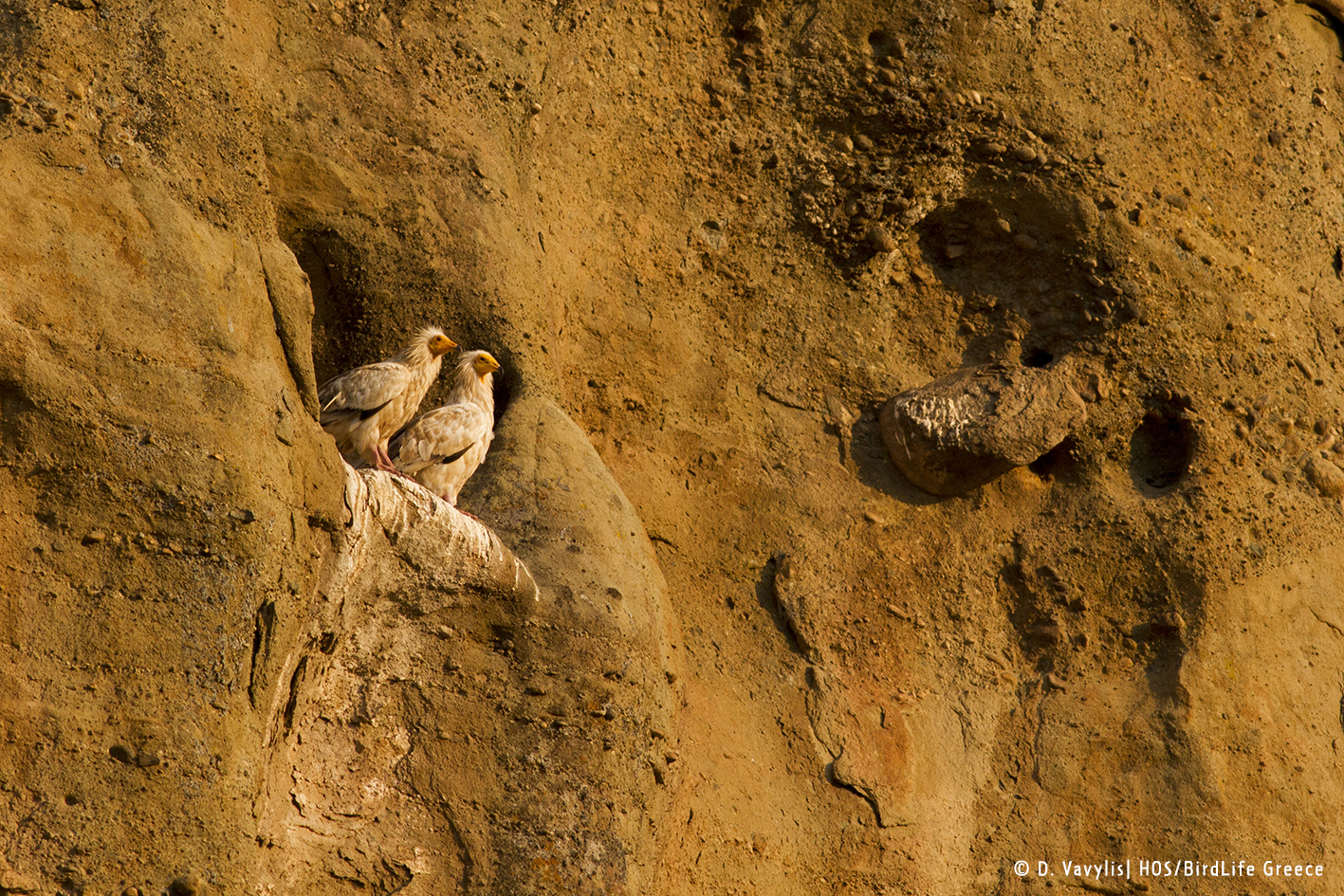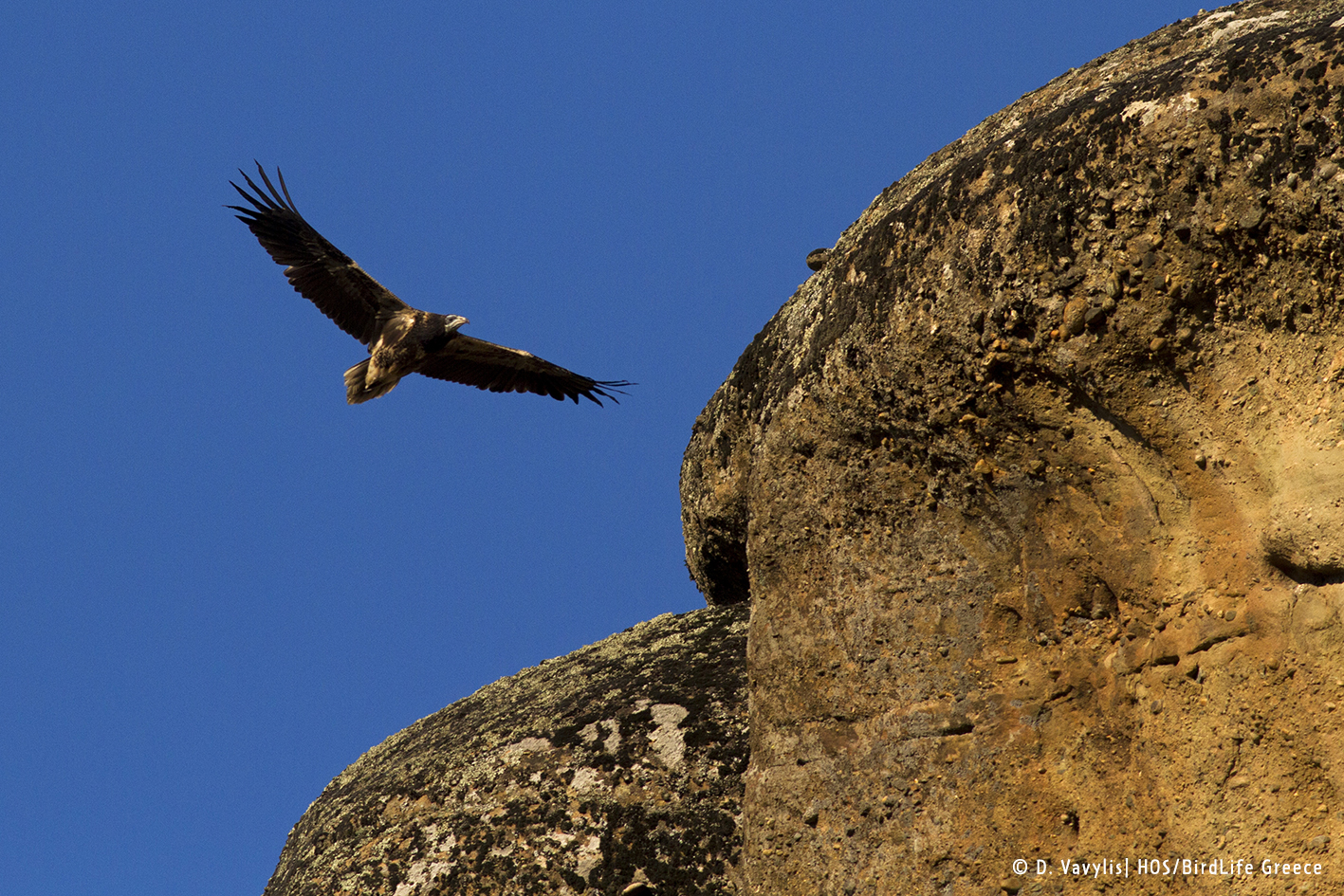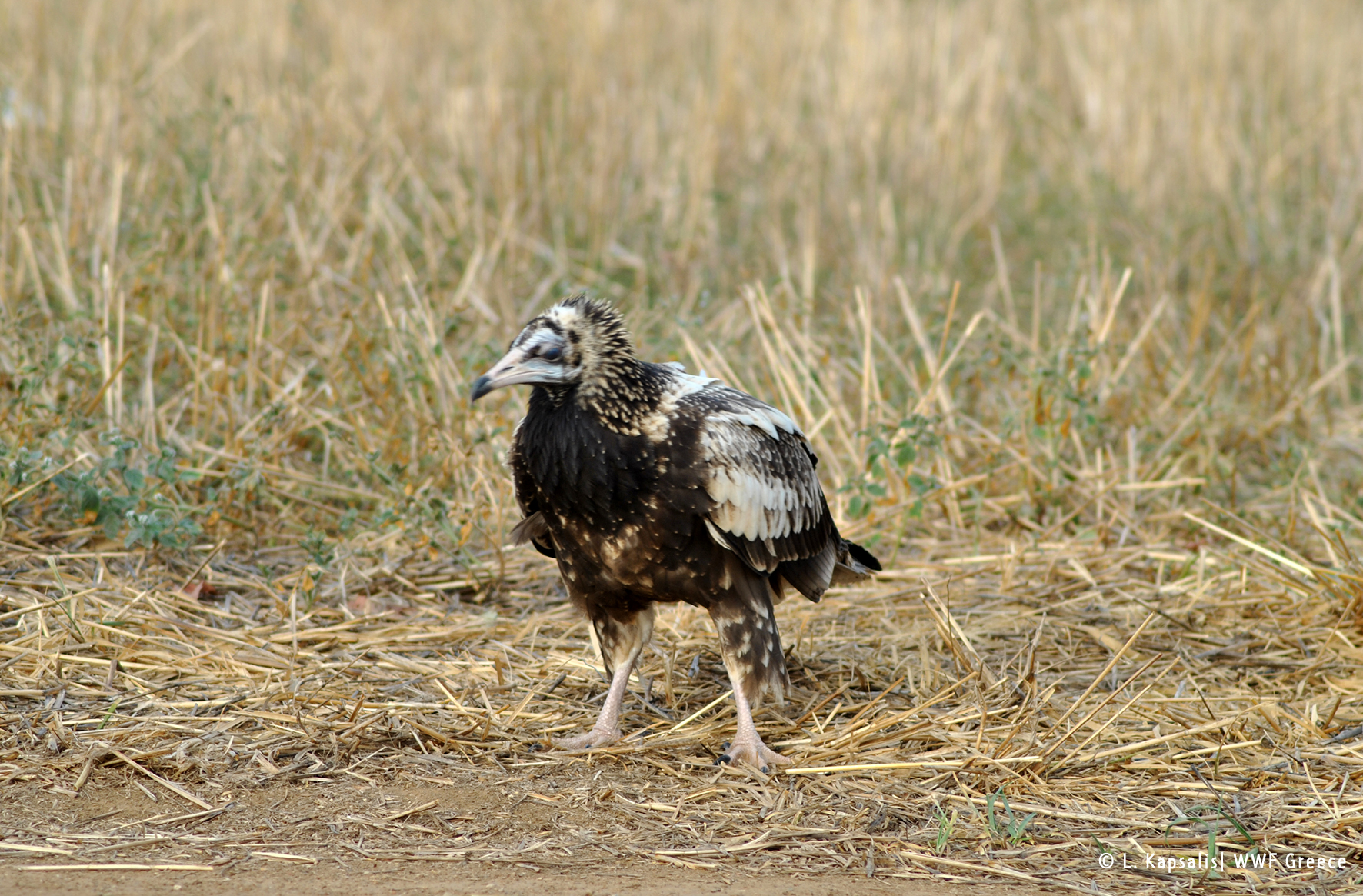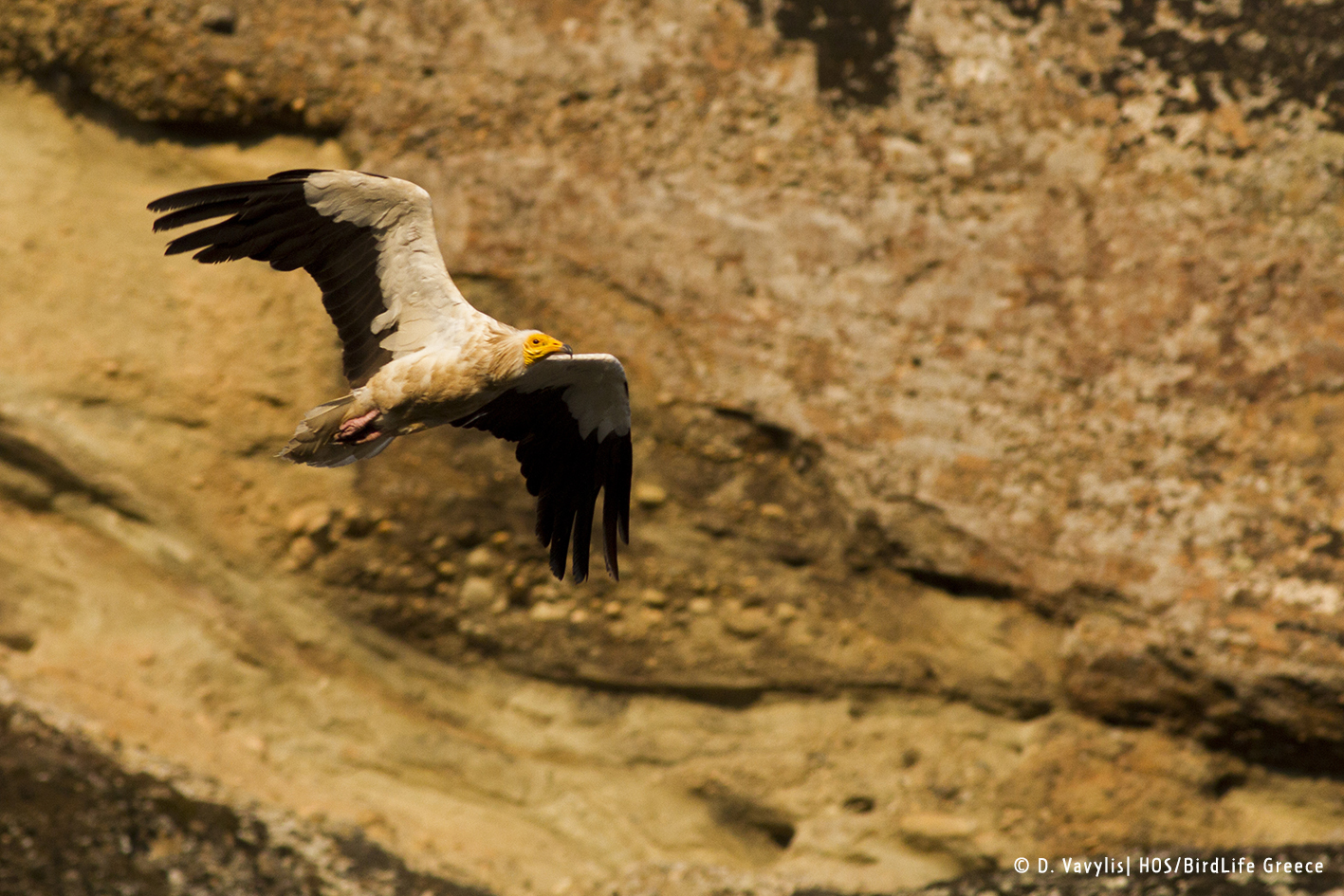
One more year, true to their annual meeting with us, as they have done for thousands of years, the Egyptian vultures flew all the way from Africa breed in Greece.
According to the results of the monitoring efforts carried out by HOS/Birdlife Greece and WWF Greece in the framework of the LIFE Project “Egyptian vulture New LIFE”, the breeding season of 2018 showed a similar trend to that of the previous year. The number of occupied territories remained the same (six territories), as so did the number of pairs (five pairs) and the number of breeding pairs (four pairs), but the number of successful fledglings increased to five from three in 2017!

The region of Thrace was home to four Egyptian vulture pairs (three in Dadia Forest National Park and one in Kompsatos area). The three pairs in Dadia nested, but only two managed to successfully raise their offspring, each of them raising two fledglings. All the fledglings flew successfully from their nests and departed for their (first) migratory journey. Although the pair in Kompsatos didn’t nest, an important discovery was made: one of the birds had been replaced by an Egyptian vulture from Bulgaria, but not only that, this bird was the only survivor of the nine chicks that had been tagged with a satellite transmitter in 2012! Although the pair spent the whole spring period in their territory, from July onwards they started also to visit very often the neighboring Bulgaria.
The region of Meteora was this year’s champion, winning two first places: the first came on March 19th with the first observation of an Egyptian vulture in Greece and the whole Balkans, that of the well-known "Crooked-tail", the lonely Egyptian vulture male of Meteora, who once again was left without a mate. The second one, came on May 22nd, when the first Egyptian vulture chick of the Balkans hatched in Meteora. But the greatest success of all was the fact that the last pair of Meteora managed to successfully raise their chick after four years of failed attempts! Towards the end of August, all four Egyptian vultures left the rocks of Meteora and started their migration trip to Africa.
In Epirus, Aoos, the adult Egyptian vulture, tagged with a satellite transmitter in 2015 by HOS/Birdlife Greece, returned again this year from the distant Chad where it usually winters choosing a safe route through the eastern Mediterranean countries rather than the dangerous . Unfortunately Aoos didn’t manage to raise a chick this year as he had in the previous years (his breeding territory is in Albania but visits the Konitsa region on a daily basis to feed) and thus began his long trip to Africa in mid-August, safely reaching his winter destination in sub-Saharan Africa.

To summarize the above, one of the most important results of this breeding season is that no Egyptian vultures were poisoned. For a population that has suffered such a sharp decline as the Egyptian vulture’s has in recent decades, this year’s results are to be considered an important success. They are a combination of luck and of our constant efforts against the illegal practice of poison baits through the actions of the LIFE Projects that have been implemented since 2012 for the protection of the Egyptian vulture.
We wish our Egyptian vultures to safely go through the winter season in Africa and to see them again next spring in the Greek sky, bringing with them new members in the team!


The Egyptian Vulture New LIFE Project is implemented by the Bulgarian Society for the Protection of Birds/BirdLife Bulgaria, in collaboration with the Hellenic Ornithological Society/BirdLife Greece, WWF Greece, the Royal Society for the Protection of Birds/BirdLife UK (RSPB), Doğa Derneği/BirdLife Turkey, regional offices of BirdLife International in Africa and Middle East, A.P. Leventis Ornithological and Research Institute (APLORI), CMS Raptors MoU and Green Balkans. The Project is funded by the LIFE+ financial instrument of the European Union and the A.G. Leventis Foundation.


